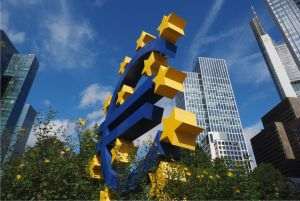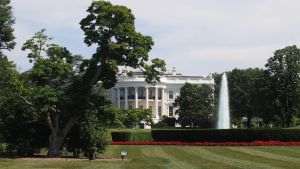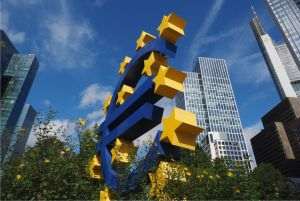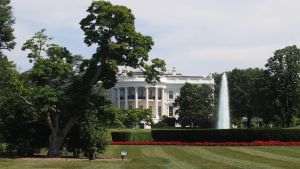Just as the unofficial "rating" of Deutsche Bank went from "atrocious" to "depressing", according to Dominic Elliott, writing for Reuters, following the publication of the earnings for Q1 2016, the German financial giant found itself involved in a new scandal.
Financial Times got hold of a letter from the Financial Conduct Authority (FCA), the regulator of the Brithsh financial markets, which states that "Deutsche Bank has major flaws when it comes to preventing money laundering and financing terrorism", and "these flaws have a systemic nature".
Furthermore, "for a considerable amount of time, the efficient involvement of the executive management in the resolution of the financial crime issues", the FCA document further states.
Reuters writes that the British financial authority has placed the London division of DB "under enhanced watch" since back at the end of 2014, amid "concerns over corporate governance and internal audit".
Following these revelations, Institutional Shareholder Services (ISS), an international shareholder consulting firm, has advised DB shareholders to vote in favor of the beginning of an independent audit process, because "there are significant doubts concerning the ability of the supervisory board to investigate the potential illegal actions of its members, which reflects a conflict of interests". The next general shareholder meeting of the shareholders of Deutsche Bank will take place in Frankfurt on May 19th, 2016, according to the notice to attend located on the website of the bank.
The recommendation of the ISS also comes as a result of the recent resignation of an important member of the Supervisory Board of the bank.
A press release posted on the DB website states that Georg Thoma, member of the Supervisory Board and president of the Integrity Committee, has presented his resignation two years before his term was set to expire.
In the same press release, Paul Achleitner, the president of the Supervisory Board, stressed Thoma's achievements and thanked him "for everything he did for the bank".
Unfortunately for the biggest German financial institution, Georg Thoma actually did too much, and the result was an open conflict with both the executives, as well as with the Supervisory Board.
Bloomberg writes that "Thoma went too far with investigating the potential illegal activities of the bank" and has been "isolated" as a result of "examining the ties between the members of the executive management and the lawsuits that the bank has been involved in over the last two years".
One of Thoma"s "targets" was actually Paul Achleitner, and the conflict blew up in the press last week, when Alfred Herling, the vice-president of the Supervisory Board, criticized Georg Thoma for "being too zealous and spending too much time investigating potential illegalities", according to Bloomberg.
The conflict between the two is marked by a bitter irony, as it was precisely Achleitner that recommended Thoma for the position on the Integrity Committee, based on their friendship, "cemented" by their cooperation on the privatization of the East-German chemical industry, according to the Bloomberg article.
Georg Thoma was elected as member of the Supervisory Board of DB in 2013, and since then, the total cost of the lawsuits that Deutsche Bank has been involved in has amounted to about 12.6 billion Euros, according to Bloomberg data. Significant costs are expected to occur in 2016 as well, as mentioned by the executives of the bank in the presentation of the Q1 2016 results.
Amid the major loss posted in 2015 and the uncertainty over legal expenses, DB shares have fallen 41% in the first month of 2016. In the beginning of May 2016, the price of DB shares was 32% below the level it was at in the beginning of the year on the Frankfurt Stock Exchange.
The current market price for the stock, of approximately 15 EUR, is almost 60% below the NAV per share of the financial statement for Q1 2016, which also states that DB has a tier I capital ratio of 10.7%, for total assets of 1.74 trillion Euros and risk weighted assets of 401 billion Euros. Does a net risk weighting of 23% reflect the true risk of the balance sheet of the biggest bank in Germany?
After the previous accusations of interest rate manipulation on the interbank market or of currency exchange rates, Deutsche Bank recently admitted that it was also involved in manipulating gold and silver prices.
In mid-March, an article posted by Bloomberg reported that the bank had reached a settlement with the American courts, without mentioning an amount, and the terms of the agreement also included providing information to the courts concerning the involvement of other banks in the manipulation of the prices of precious metals.
The list of banks subpoenaed in the lawsuits over the manipulation of the price of gold and silver also include financial giants like HSBC Holdings, Bank of Nova Scotia, UBS AG, Barclays and Societe Generale.
An unfortunate historical precedent could cause DB not to cooperate with the prosecutors as expected. It was 1998, and hedge fund Long-Term Capital Management needed a bail-out because of its systemic importance.
The Federal Reserve coordinated the "rescue" mission, which involved at least 14 international banks, including Deutsche Bank. Individual "contributions" of 300 million dollars came from 11 banks, and the combined "donation" of three French banks amounted to 325 million dollars.
Two American investment banks, Bear Stearns and Lehman Brothers, refused to participate, and the "payback" came 10 years later, when one of them was acquired for a pittance, (Bear Stearns), and the other was driven into bankruptcy, amid massive short sales coming from its business "partners".
Deutsche Bank behaved like a "team" player in 1998 and contributed 300 million dollars to support the hedge fund.
Is its legal position so fragile this time that it will agree to play against the team, in hope of getting the unconditional support of the authorities in Berlin?
















































